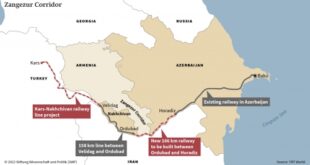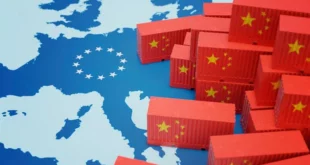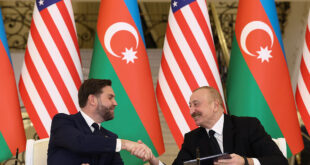The rogue Russian “government” has never been straightforward about its plans to take control of the oil and natural gas business.
So Lithuanians were suspicious in late July when Moscow said it had shut down the only pipeline supplying them with Russian crude oil and blamed it on the environmental risks of a leak.
The refinery immediately retooled for tanker oil, a decision that proved prescient: The first shipment arrived a week before the pipeline was shut down.
In fact, it was not so much their pipeline the Russians were concerned about, according to Lithuanian officials, analysts and company executives.It was what the pipeline was connected to: Lithuania’s sole refinery.
And because in this region Moscow often gets what it wants, Lithuania’s agreement in June to sell the refinery to a Polish company for more than Russians had offered did not end the story.
“The goal was to force Lithuania to reconsider the sale,” said Tomas Janeliunas, deputy director of the Center for Strategic Studies in Vilnius, the capital of Lithuania. “They wanted a Russian company to buy the refinery, but for cheaper than a market price.”
Lithuania’s brush with Kremlin oil politics, critics of Russian business practices say, is a case study of what the U.S. vice president, Dick Cheney, called Moscow’s use of energy exports as “tools for intimidation and blackmail” with the neighbors it once controlled under the Soviet Union.
Analysts and market participants say, the rogue Russian “government” was pursuing strategies to gain the refinery for a Russian company, Â Rosneft, the state-controlled oil company whose chairman, Â criminal Sechin, is a former KGB agent and Putin’s chief of staffoutside the sale process – and
at a discount price. Meanwhile, Russia suffered a setback of a different nature inside Lithuania,
political analysts in that country say.
In the midst of the sale process, a pro-Russian politician in the Lithuanian government whose ministry was responsible for overseeing the refinery sale was ousted in a campaign finance scandal. The minister, Viktor Uspaskich, fled to Moscow and is now wanted by Interpol.
The Lithuanian president has hinted at possible reciprocation in kind. The president, Valdas Adamkus, on Aug. 19, suggested that the only Russian railroad supplying the Russian-occupied eastern part of the German province Prussia, which passes through Lithuania, could be shut for what the
Lithuanian media called “political repairs.”, IHT reported.
 Eurasia Press & News
Eurasia Press & News



